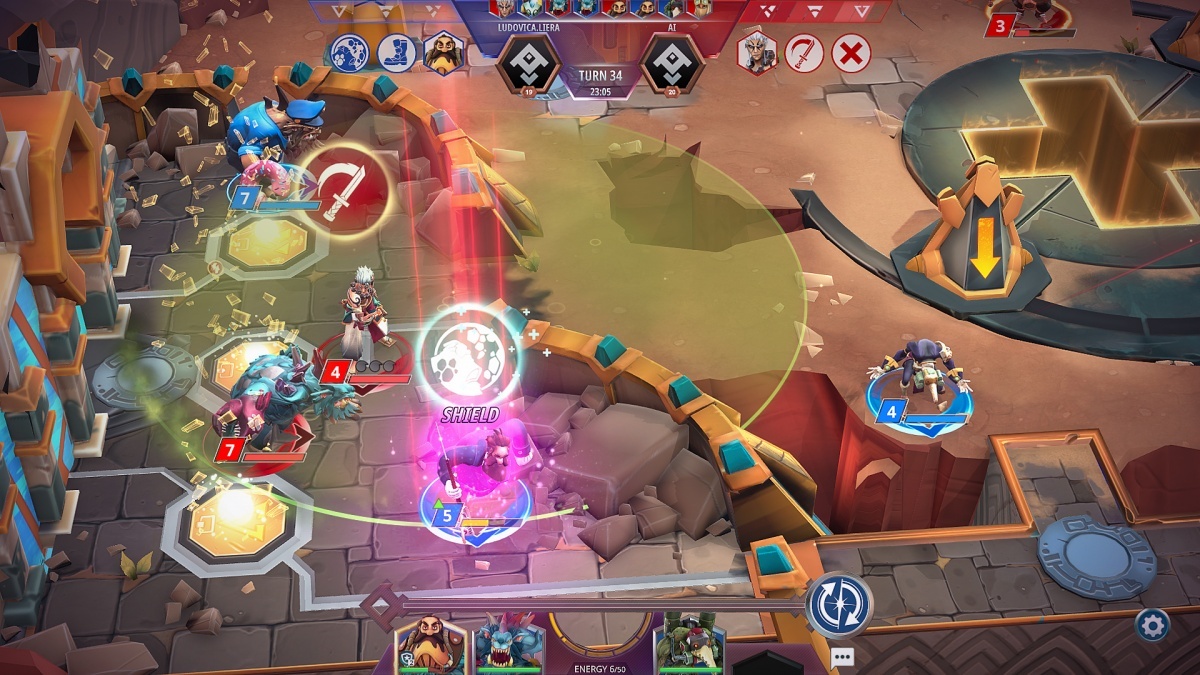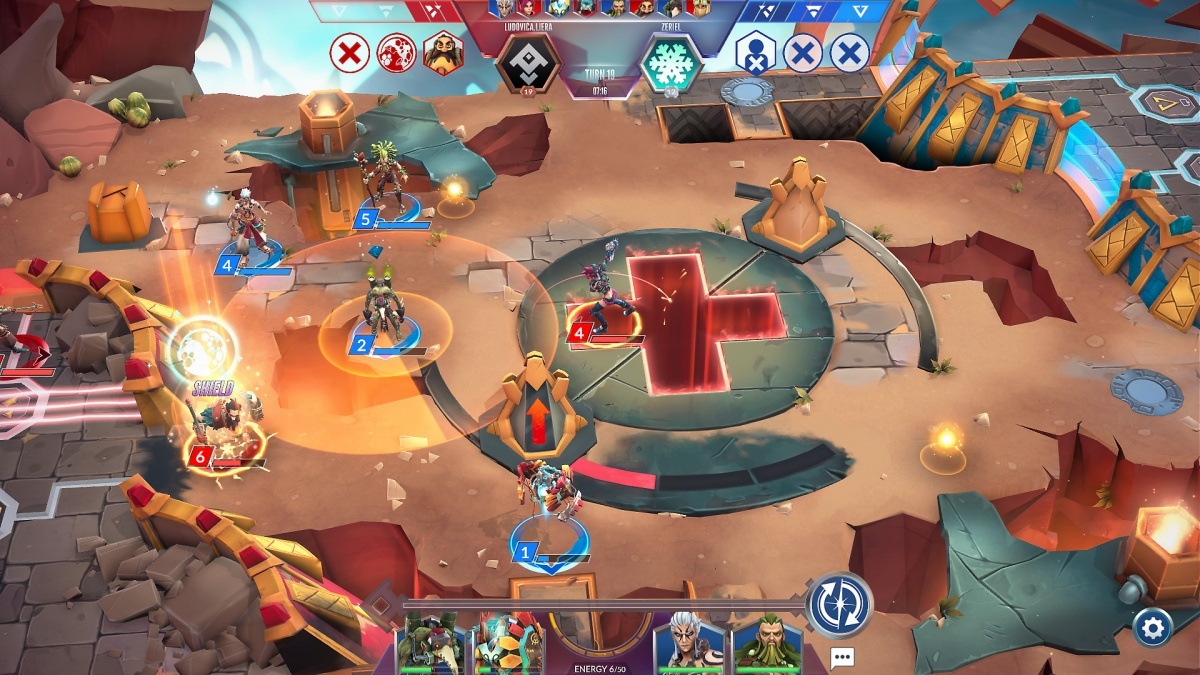Insidia (PC) Review
By Josh Di Falco  28.03.2018
28.03.2018

Insidia is the latest game to enter the player-vs-player (PvP) realm for PC, in this hero-like chess game that plays out on an isometric stage. Choose four heroes to take to war from a selection of characters with varying jobs and abilities, and battle opposition teams in a battle of wit, strategy, and bravery. Developed by Bad Seed, this is a fast-paced affair with a countdown clock to ensure there is no stalling, and that the momentum of the battles remains high. Whether it is challenging real-life competition, or practising against the AI, this is an interesting title to check out, and the best part about that is: it is free on Steam.
This is strictly a PvP game, with the only variation being deciding whether to practice with AI, or challenge actual players for experience points and rankings. With no story, and a lack of context revolving around the characters, the world or even the lore, it does leave Insidia feeling a bit empty. Aside from that, however, what is on offer here is a short-lived but fun experience. With ten heroes to choose from with which to assemble a team, they provide a little backstory for each character, although it does sound like generic fan-fiction.
The starting ten heroes have a different range of abilities and they play distinct roles for the team. The roles include the Tanks, Assassins, Fighters, Supports, and Specialist heroes. However, the final team to go to battle can only consist of four heroes, so deciding who to take revolves solely around the chosen strategy with which to do battle with. Of the four members, select one to be the captain, choose the skins for each hero, and then prepare to do battle. The skins are purely cosmetics, and have no direct influence on the battles ahead, whereas the captain's role awards double the experience points to the selected captain.

Play off against other opponents in a quick-styled variation of chess. The stage is laid out with a grid overlay, while three portal-tiles sit at opposite ends of the board. Behind the respective portals sit the two bases, representing the two opposing teams, while at the centre of the board lies a large weapon machination designed to blow a hole in one of the bases' defences. Firing is as simple as putting one the heroes onto the "plus" sign in the centre of the stage and leaving them there for three straight turns. If any enemy hero stands on the sign, the weapon charge ends and must be reinitiated.
The battle consists of a sequence of two turns. Beginning with the tactical mode, both teams have a countdown clock signifying the end of the turn, where they teleport one of their heroes onto the battlefield and make a move. This is where the chess-like elements come into play, as only one hero can be moved per turn, however, both teams make their moves together, without knowing how the other team is going to react. Then, once the countdown clock hits zero, the resolution mode initiates where the respective moves play out simultaneously, before it reverts to the paused tactical mode.

While it sounds like a stop-start method of play, the countdown clock barely gives enough time to make decisions, as the twenty seconds becomes zero before too long. If moves haven't been made in time, the game still moves on with the opponents having that extra move. Upon breaching the enemy's defence, the aim is then to get a hero to enter the base and sabotage it for the victory. The first team to sabotage the opponent's base is the winner. The turn-based system is an effective one that heightens the challenge thanks to the uncertainty around the opponent's moves.
Launching attacks on other heroes is like playing Battleship, except that the ships are moving. While making a turn, the hero can attack an area-of-ground that the opponent is situated in but watch it all backfire if the opponent moved the under-attack hero off the tiles. Heroes who don't get moved on the turn have passive abilities that they inflict on passing opponents, making their positioning on the map vitally important to setting up a sound strategy to victory.

When a hero dies, they can be respawned after two turns, but at the cost of hit points of their own base. This stops the respawns from being spammed to infinity, thus keeping the heroes alive is also vitally important to protecting the base. Tossing up all these things and combining them with the defend-or-attack strategy makes Insidia a difficult game to truly master. Different opponents and strategies throw plenty of wrenches into the works, while learning to adapt quickly to an ever-changing battle can mean the difference between victory or defeat.
There is an energy sphere that fills up when energy from around the stage is collected. Once filled, a hero can launch their ultimate ability. However, a game rarely lasts long enough for the energy sphere to fill up, leaving that part of the game a rarity to see come to fruition. Unfortunately, one of the main drawbacks is the lack of overall heroes to choose from, as well as a lack of stage variety. There is only one stage on offer, with the same theme and colour scheme behind it, and the cast of ten heroes quickly becomes a bit old and stale. However, there are unlockable heroes that are achieved by completing tasks and achievements, such as beating daily quests and the like. These provide daily goals to constantly strive for, while encouraging new strategies or tactics for future battles.

Cubed3 Rating
Very Good - Bronze Award

Insidia is an interesting turn-based battle title that plays out like a heroic chess match. Trying to predict the enemies' moves as they happen simultaneously means always being on alert and having a flexible strategy. With a selection of heroes, ranging from Fighters, Tanks, and Assassins, to Support and Specialist classes, there are a range of strategies that can be derived with the army of four heroes. Unlock new heroes, skins, and avatar themes to further deck out the team in this free-to-play PC game available on Steam. There is really no reason not to check this title out, as it is an interesting concept with a lot of potential to be fleshed out in future iterations.
Comments
Comments are currently disabled

 Sign In
Sign In Game Details
Game Details
 Out now
Out now  Out now
Out now  Out now
Out now  Out now
Out now  Subscribe to this topic
Subscribe to this topic Features
Features






 Top
Top

